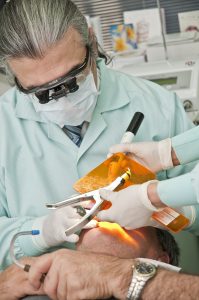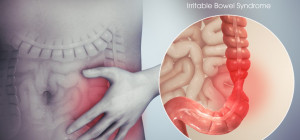When you go to see your dentist, it is tempting to think they are only looking at your teeth and gums. But in fact, they can sometimes tell if you have other diseases. Often the early signs of certain diseases are evident in your mouth as it really is a mirror of your general health. Many diseases will exhibit the earliest symptoms in the mouth meaning they can be discovered through routine dental examinations.

These diseases include oral cancer, diabetes and leukemia, and early detection can help improve the outcome of treatment. For example, people with diabetes may have more glucose in their saliva which in turn can increase the risk of tooth decay. If your dentist knows you generally take good care of your dental health and suddenly spots a few unexpected cavities then they will want to know the reason why.
They may suggest the problem needs further investigation in addition to the appropriate dental treatment. Although your dentist may not be able to diagnose medical conditions they can still recommend that you visit your physician for appropriate care. This is if they happen to notice anything is wrong.
Regular Checkups Are an Important Part of Any Preventative Care Regime
Regular visits to your physician for routine checks should be important. Visit your physician to check your blood pressure and cholesterol levels. Your dental checkups should form an important part of your preventative care regime. Most dentists place a huge emphasis on preventative care and in general maintaining a healthy mouth rather than waiting until problems arise.

Your dentist would rather want to see you regularly than to have to fit you in as an emergency patient. They do this when you are far more likely to be in pain or discomfort and where much more extensive treatment may be needed. In addition to helping prevent dental pain, preventative dental care is considerably more cost-effective. If you neglect regular preventative dental care, you are more likely to need more complex and costly treatment.
This is to restore or replace damaged teeth. It is also much more likely that you will need to spend longer in the dental chair than just an hour or so every six months. This is before even considering the potentially protective effect on your general health. One of the most important checks carried out by your dentist is a screening for oral cancer.
Why Does a Dentist Screen for Oral Cancer Rather Than a Doctor?
Your dentist is uniquely qualified to screen patients for oral cancer and has received special training to carry out this important task. Dentists are especially well-positioned to closely assess patients for the early signs of oral cancer because they regularly monitor people’s dental health. Most dentists will visually examine a patient’s mouth for any signs or symptoms of oral cancer.
They will also gently feel the lymph nodes in the neck and will move the tongue out of the way so they can look right underneath the tongue. They will do this so that they can see the floor of the mouth. Some dentists also use a special handheld device that supplements a visual examination. This device can shine a special light on tissues.
Healthy and diseased tissues will fluoresce slightly differently, making it easy to identify any problem areas that require closer investigation. Some people are more at risk of developing oral cancer than others. Even if you don’t have any known risk factors you still need to be regularly checked. Around a quarter of all cases of oral cancer are diagnosed in people without any known risk factors.
Who Is More Likely to Get Oral Cancer?
Age is a big factor, particularly for men aged over 50 and men are twice as likely as women to develop oral cancer. Smoking is another big factor with smokers six times more likely than non-smokers to develop cancers of the head and neck. It’s no better if you choose to use smokeless tobacco as users of these products are 50 times more likely to develop cancers of the gums, the cheeks or inside the lips.
Sometimes smokers will develop a condition called leukoplakia, where white patches develop on the insides of the cheeks and oral tissues. While these patches are not cancerous, they can be a precursor to this disease. You should be more aware of the potential risks of oral cancer if you have a family history of this disease or if you have the human papillomavirus. If you frequently got sunburnt as a kid, your risk is higher.
What Symptoms Are Dentists Checking for?
The most common symptoms of oral cancer include unexplained bleeding or having sores that will bleed easily and which do not heal properly within a couple of weeks. Oral cancer can create swellings and lumps and bumps as well as rough spots or thickened areas inside the mouth or on the lips and gums. These areas may change color, becoming white or red or will be speckled with white and red.

Dentists also check the way teeth fit together as a change in occlusion or a change to the fit of dental appliances such as dentures can indicate that something is wrong.
Symptoms You Should Be Aware of
Then there are the symptoms that you need to be aware of and which include any loss of feeling or numbness in your face, mouth or neck area or any signs of pain or tenderness. Oral cancer can cause difficulty with chewing or swallowing, or with moving your jaw or tongue properly. People may experience a chronic sore throat or it might feel as if something has caught right at the back of the throat.
What Happens If the Dentist Sees Something Wrong?
If your dentist does see something they think needs further investigation they might choose to take a brush biopsy. By drawing a very small brush across the surface in question, your dentist can collect a small sample of cells that will be sent for further analysis. Otherwise, they may recommend a more extensive biopsy or could refer you to the appropriate specialist.
Without prompt treatment oral cancer can become life-threatening and the five-year prognosis for this disease isn’t great for people diagnosed in the latter stages. This is the nice thing about seeing your dentist regularly. It literally could be life-saving if they happen to detect any signs of disease such as oral cancer that can be appropriately treated at a much earlier stage.







